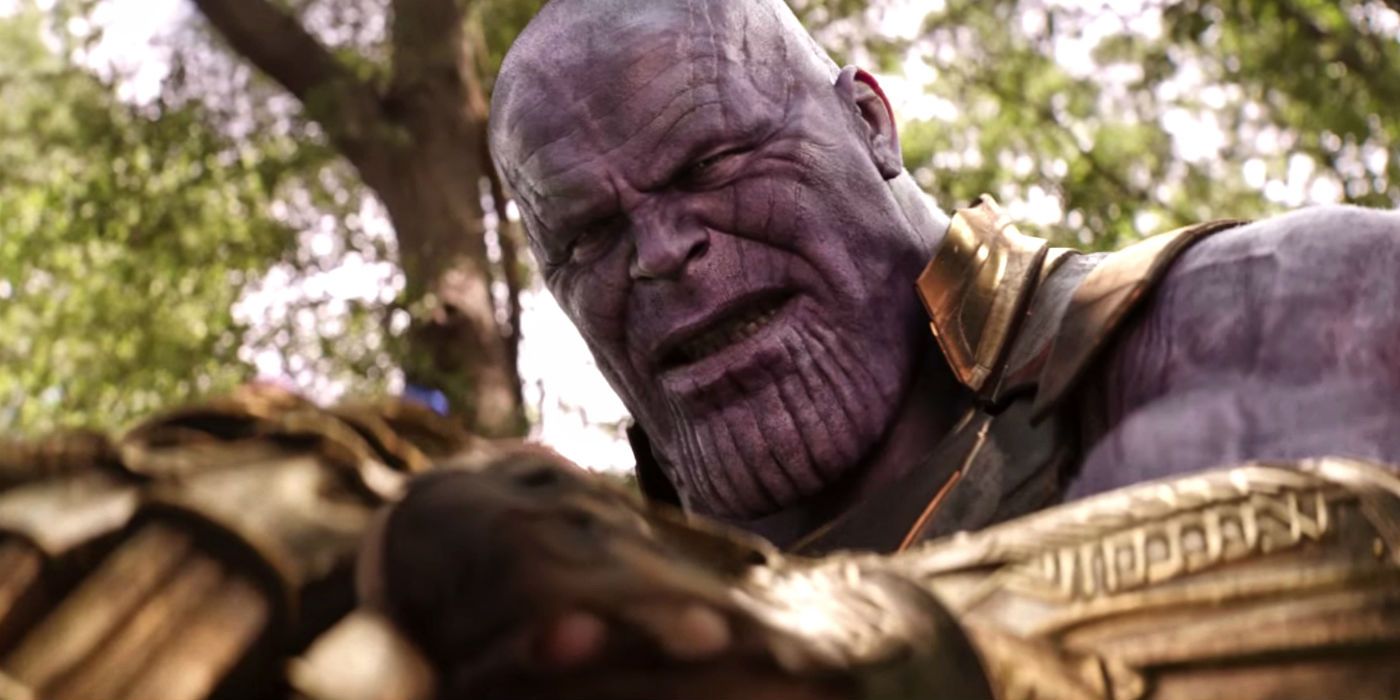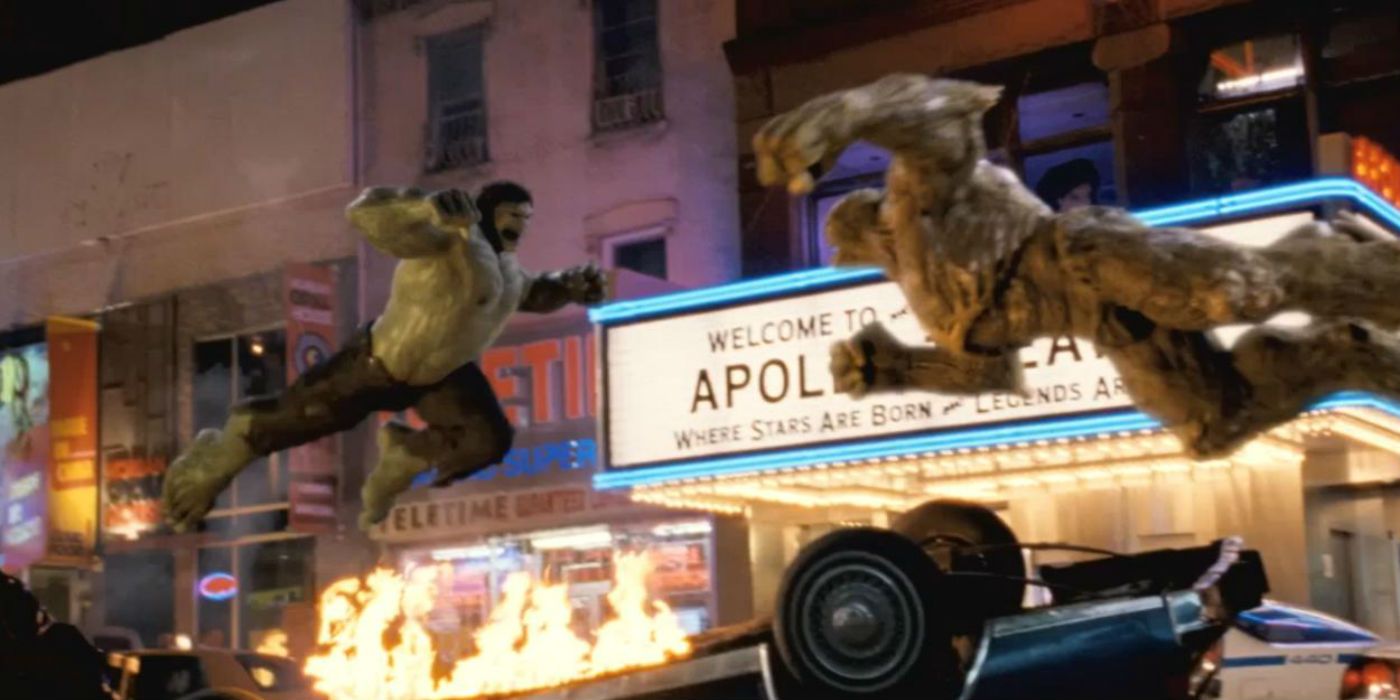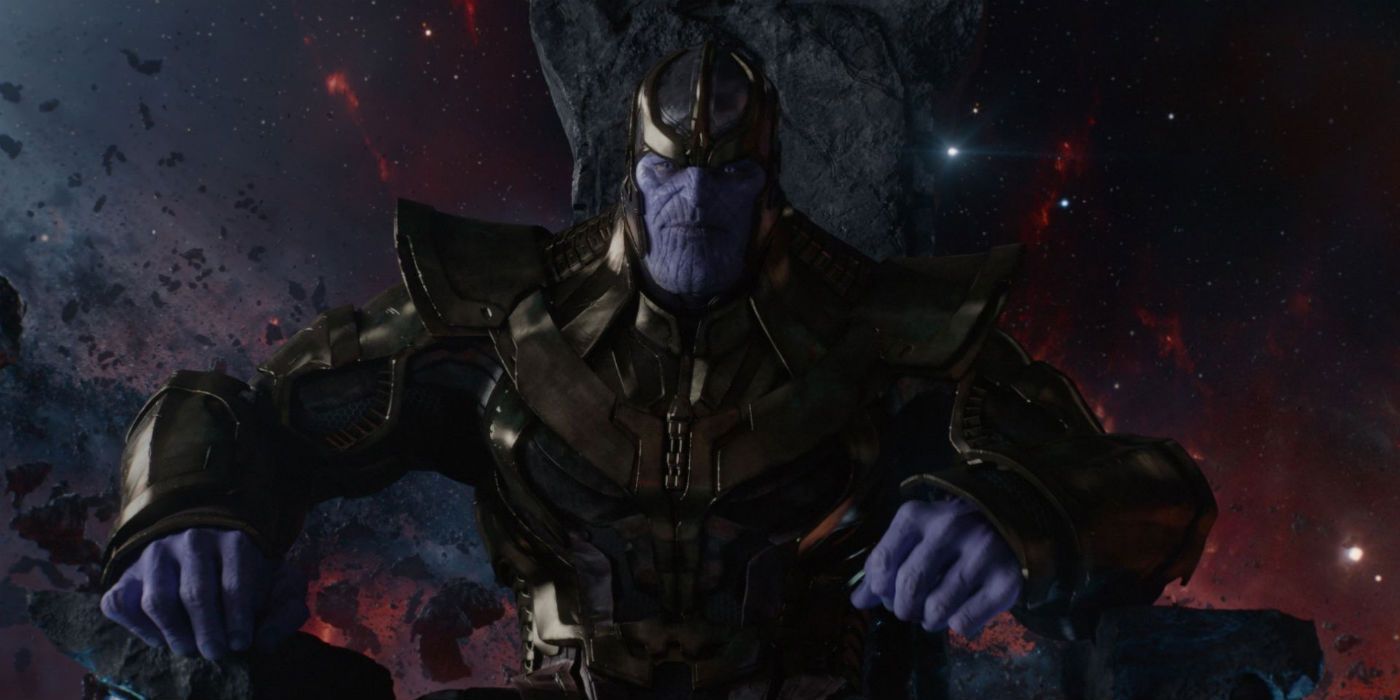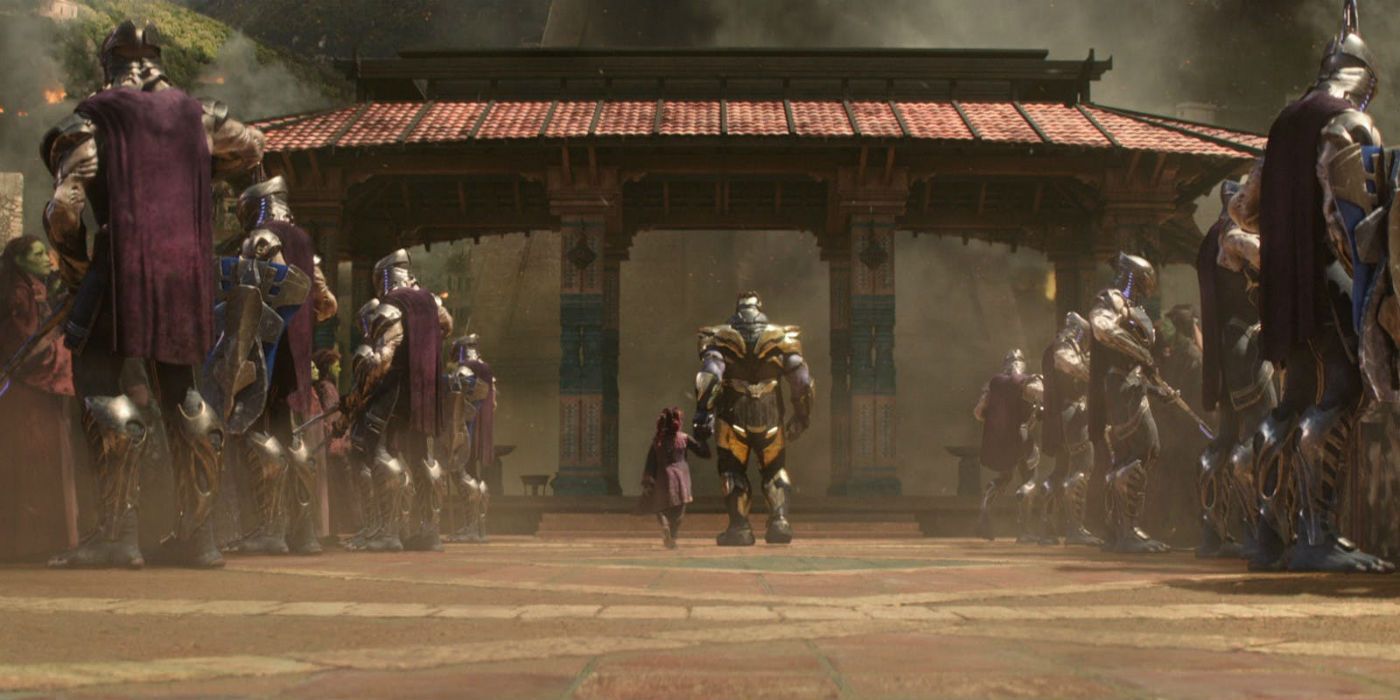WARNING: The following article contains major spoilers for Avengers: Infinity War, in theaters now.
The villains of the Marvel Cinematic Universe vary from simple and boring to complex and impactful, but no matter how great or how bad they are, none of them ever had to meet the high expectations created by six years of anticipation, After all of that, Thanos would either meet that high-water mark or fail miserably when he finally emerged into the spotlight in Avengers: Infinity War.
Marvel Studios President Kevin Feige promised fans in 2017 that Thanos would be the MCU's biggest and baddest supervillain. While it's not unusual for filmmakers to make exaggerated claims to build excitement, Feige's assertion wasn't the kind one makes without absolute certainty that Infinity War would deliver. Still, that wasn't the boldest statement made by those involved with the sequel.
CLICK HERE FOR CBR'S FULL AVENGERS: INFINITY WAR COVERAGE
Directors Joe and Anthony Russo intended to create a villain that would leave a lasting impression. At one point, Joe Russo stated, "I wanted to turn Thanos into Darth Vader for a new generation." It was an ambitious goal, but after seeing Infinity War, many fans may agree the Russo brothers could actually have a shot at achieving that, because the Mad Titan certainly isn't the average MCU supervillain.
Until this point, the MCU has developed a reputation for villains that are often generic and occasionally poorly written. There's a broad spectrum of supervillain types in this cinematic universe, and they're not all golden.
A lot of them are, more or less, dark reflections of their heroic adversaries with no real character of their own: Iron Monger (played by Jeff Bridges) in Iron Man, Abomination (Tim Roth) in The Incredible Hulk and Yellowjacket (Corey Stoll) in Ant-Man. None of them had any real depth; they were evil for evil's sake, and were incapable of being anything more than lessons in discipline for their nemeses.
The one time a dark reflection worked well was in director Ryan Coogler's Black Panther, with a primary antagonist Killmonger (Michael B. Jordan) who didn't don a costume similar to the protagonist's until the very end. Killmonger had far more impact than his villainous predecessors, partly because his motivations were complex but understandable.
Page 2: [valnet-url-page page=2 paginated=0 text='Not%20All%20MCU%20Villains%20Are%20Created%20Equal']
Some villains exist solely to create conflict, which isn't necessarily bad. For example, Doctor Strange featured Dormammu, who was only briefly mentioned and remained in the background so we could better come to know Stephen Strange (Benedict Cumberbatch). By contrast, there's Malekith (Christopher Eccleston) from Thor: The Dark World, who received too much screen time for a generic doomsday villain.
Most of the MCU's standout antagonists aren't defined by their powers or their ultimate goals. For example, one of the most memorable adversaries is Loki (Tom Hiddleston), whose aspirations and powers come second to his complexities. He's interesting to watch, and his story often took us to places we didn't expect. We can understand, and even relate to, him.
RELATED: Thor’s New Infinity War Weapon (and Its Power), Explained
Relatability is also one of the defining qualities of the MCU's greatest villains. Vulture (Michael Keaton) in Spider-Man: Homecoming was an average guy with a family and a tough, low-paying job. We could understand his motivations, even if we couldn't believe his destructive actions were justified.
The Russo brothers understand that. All of the MCU films they've directed have focused on more than the threat of villains. They raise questions that explore the gray area between right and wrong. They did that with Captain America: The Winter Soldier and Civil War, both of which contemplated the dangers of power in the wrong hands. They build upon that theme with Infinity War, only in a more fantastical way.
So why is any of that important when it comes to Thanos? Because the Mad Titan, as depicted in Avengers: Infinity War, possesses all the qualities of great MCU villains, perfectly balanced within one memorable antagonist, which is fitting for Thanos, considering his universe-shaping scheme.
When we were first properly introduced to Thanos in Guardians of the Galaxy (directed by James Gunn), he sat in his throne and made a couple of threats to his underlings. In other words, he was depicted as your average evil villain. That seemed to be the sum of his character even as far as the opening scene of Avengers: Infinity War. What separated him from other villains was that he actually managed to kill a main character, in this case, Loki. That shocked everyone and established the kind of surprise audiences should expect from the film.
Page 3: [valnet-url-page page=3 paginated=0 text='The%20Mad%20Titan%27s%20Motivations%20Are%20Misguided%2C%20But%20Understandable']
The MCU had spent countless films exploring the heroes, so the Russo brothers had an opportunity here to focus on the villain in Infinity War without having to worry about further establishing heroes like Iron Man and Captain America. So while it would have been easy to turn every one of Thanos' scenes into a beautifully shot and rendered action sequence, the filmmakers took the opportunity to develop him as a character.
RELATED: Where Does [SPOILER] Go At the End of Infinity War?
We learn he wants to wipe out half the universe, not for the fun of it or for revenge. It's because he believes it's the only way life can continue to flourish, as he explains to his daughter Gamora (Zoe Saldana) in the throne room of his ship. It sounds contradictory at first, but it makes sense. The problem Thanos is attempting to solve isn't unimaginable; the consequences of overpopulation are something that affect our world. He's simply tackling the issue on a much larger scale. It's not about destruction; it's about restoring balance.
An understandable goal is all well and good, but it's not enough if the antagonist can't evoke sympathy from the audience. Infinity War dedicates a considerable amount of time to developing Thanos on an emotional level, and for the most part, it uses his relationship with Gamora to accomplish that.
The perfect example of that is the flashback in which we see Thanos meet Gamora after slaughtering half her race. He respected her courage and saw potential in her strength. More than that, he appeared to genuniely care for her, as evidenced by his attempt to distract her attention from the massacre behind her. It says a lot about how he feels about his destiny. He believes there are consequences to trying to escape one's fate, so he's not about to try. Even if that means giving up everything he holds dear, which Thanos did on Vormir in order to acquire the Soul Stone.
RELATED: How the Infinity Gauntlet’s Origin Changed From Comics to Infinity War
There were little moments of hesitation, tears, and a relieved smile at the very end of Infinity War that speak volumes about what motivates the Mad Titan. In his mind, he's fighting for the greater good. Sacrificing one life, even if it's the life of someone he loves, is worth it.
There's a lot more going on with Thanos than there is with any other MCU villain. That he succeeded in balancing the universe already distinguishes him from others, but more than that, he's complex, memorable and meaningful -- everything Darth Vader was. Kevin Feige and the Russo brothers made big promises, and they delivered.
Directed by Joe and Anthony Russo, Avengers: Infinity War stars Robert Downey Jr., Chris Evans, Chris Hemsworth, Mark Ruffalo, Jeremy Renner, Scarlett Johansson, Paul Bettany, Anthony Mackie, Paul Rudd, Elizabeth Olsen, Tom Holland, Benedict Cumberbatch, Chadwick Boseman, Chris Pratt, Zoe Saldana, Dave Bautista, Bradley Cooper, Vin Diesel, Tom Hiddleston and Josh Brolin. In theaters now.




